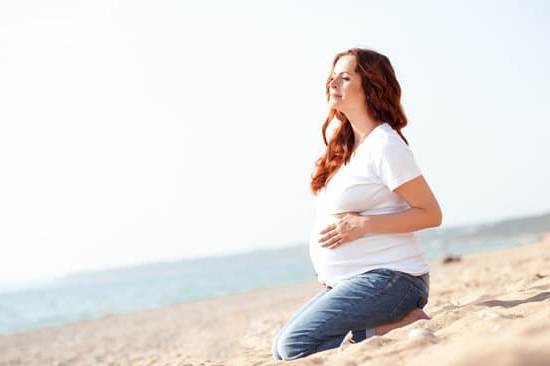Is dryness a sign of period or pregnancy? Understanding menstrual dryness and its causes is important for women to navigate their reproductive years. Hormonal changes during both menstruation and pregnancy can lead to vaginal dryness, making it essential to differentiate between the two.
Before your period, hormonal fluctuations can cause vaginal dryness, which may be accompanied by other signs and symptoms. Similarly, during pregnancy, hormonal changes can also lead to dryness in the vaginal area. It’s crucial to understand the differences in order to accurately identify whether the dryness is a sign of your period or pregnancy.
During your reproductive years, it’s common for women to experience menstrual dryness. This can be caused by various factors such as hormonal imbalances, stress, medications, or certain health conditions. Understanding these causes can help you manage the symptoms more effectively and seek appropriate medical guidance when necessary.
It’s also important to know when to see a doctor about vaginal dryness. If you’re experiencing persistent or severe dryness that affects your comfort or sexual health, it’s advisable to seek medical attention. By understanding the causes and symptoms of menstrual dryness, you can better navigate this aspect of your reproductive health.
Signs and Symptoms of Dryness Before and During Your Period
Many women experience changes in vaginal moisture before and during their menstrual cycle. This can be attributed to hormonal fluctuations that occur as part of the natural menstrual cycle. Some women may notice increased dryness in the days leading up to their period, while others may experience it during their period.
During the menstrual cycle, estrogen levels drop just before the start of a woman’s period, which can lead to decreased vaginal moisture. This decrease in estrogen can cause the vaginal tissues to become drier, leading to feelings of dryness and discomfort. Additionally, changes in pH balance during menstruation can also contribute to vaginal dryness.
The signs and symptoms of dryness before and during your period can vary from woman to woman. Some common indicators include a lack of cervical mucus, itching or irritation in the genital area, discomfort or pain during intercourse, and an overall feeling of dryness or lack of lubrication.
It is important to note that experiencing these symptoms is normal for many women and is not necessarily indicative of a larger health concern. However, if you are concerned about your symptoms or if they are interfering with your daily life, it is important to speak with a healthcare provider.
How Hormonal Changes During Pregnancy Can Cause Vaginal Dryness
During pregnancy, the body goes through various hormonal changes to support the growth and development of the fetus. One of the side effects of these hormonal fluctuations is vaginal dryness. The hormone responsible for maintaining the mucous membrane in the vagina and promoting lubrication is estrogen. During pregnancy, levels of estrogen increase, which can actually lead to a decrease in vaginal lubrication for some women.
The increased levels of estrogen can also cause changes in the pH balance of the vagina, potentially leading to a decrease in natural moisture. As a result, pregnant women may experience dryness, itchiness, and discomfort in the vaginal area. These symptoms can be particularly noticeable during intercourse or even during daily activities.
It’s important to note that not all pregnant women will experience vaginal dryness as a result of hormonal changes. However, for those who do, it can be bothersome and may impact their overall comfort during pregnancy. Thankfully, there are ways to manage and alleviate vaginal dryness during pregnancy, which will be discussed in the following section.
Differentiating Dryness as a Sign of Period or Pregnancy
During your reproductive years, it is common to experience changes in vaginal dryness due to hormonal fluctuations. However, it can be challenging to differentiate whether the dryness is a sign of an impending period or a potential pregnancy. Understanding the differences can help you navigate through this confusing symptom.
Before and during your period, you may experience vaginal dryness due to low estrogen levels. This is because estrogen helps maintain the natural lubrication in the vagina, and a drop in its levels can lead to dryness. Additionally, the cervical mucus may become thicker and drier as your period approaches, adding to the sensation of dryness.
On the other hand, hormonal changes during pregnancy can also cause vaginal dryness. The increase in progesterone levels can affect the production of natural lubrication in the vagina, leading to a drier sensation. This change occurs as early as the first trimester and can persist throughout pregnancy for some individuals.
Differentiating between dryness as a sign of period or pregnancy can be tricky since both conditions may present similar symptoms. However, if you experience other signs of pregnancy, such as missed periods, nausea, breast tenderness, and fatigue along with vaginal dryness, it might indicate a potential pregnancy.
On the other hand, if you are experiencing typical premenstrual symptoms like bloating, cramps, and mood swings alongside dryness before your expected period date, it is more likely a sign that your period is on its way. If you are unsure or have concerns about these symptoms, it is important to consult with a healthcare provider for further evaluation and guidance.
When to See a Doctor About Vaginal Dryness
If you are experiencing vaginal dryness and are unsure whether it is related to your period or pregnancy, it is important to consult a healthcare professional. While some dryness may be normal during certain times in your reproductive cycle, persistent dryness or other accompanying symptoms may indicate an underlying issue that requires medical attention.
Here are some signs that indicate you should see a doctor about vaginal dryness:
- Persistent dryness that does not improve with the use of over-the-counter lubricants
- Severe discomfort or pain during intercourse
- Bleeding or spotting unrelated to your period
- Unusual discharge or odor
If you are pregnant and experiencing vaginal dryness, it is especially important to seek medical advice as hormonal changes during pregnancy can impact vaginal health. Your doctor can help determine whether your symptoms are related to pregnancy or if there is an underlying issue that needs to be addressed.
Ultimately, understanding the cause of vaginal dryness is essential for proper treatment and management. A healthcare provider can provide personalized guidance and recommend suitable interventions to address any concerns related to dryness and ensure overall reproductive health.
Tips for Managing Dryness During Your Period
During your period, vaginal dryness can be quite uncomfortable, but there are several tips and techniques that can help manage this common issue.
Stay Hydrated
Drinking plenty of water can help keep your body properly hydrated, including the vaginal tissues. Aim to drink at least 8-10 glasses of water per day to support overall vaginal health and possibly reduce dryness.
Use Lubricants
Applying a lubricant during intercourse can help reduce discomfort caused by vaginal dryness. Water-based lubricants are a good option, as they are less likely to cause irritation or allergic reactions.
Avoid Irritants
During your period, especially when experiencing dryness, it’s best to avoid using products that may irritate the vaginal area. This includes scented feminine hygiene products, douches, and perfumed soaps.
By following these tips, you can help manage the discomfort of vaginal dryness during your period. If the dryness persists or becomes more severe, it’s important to consult with a healthcare provider for further evaluation and personalized recommendations.
Tips for Managing Dryness During Pregnancy
During pregnancy, many women experience changes in their vaginal moisture levels. The hormonal fluctuations that occur during pregnancy can often lead to dryness in the vaginal area. This can be uncomfortable and even painful for some women. Understanding how to manage vaginal dryness during pregnancy is important for maintaining overall comfort and well-being during this time.
Stay Hydrated
One of the most important tips for managing vaginal dryness during pregnancy is to stay well-hydrated. Drinking plenty of water can help keep your body hydrated, which can also help maintain moisture levels in the vaginal area. It’s essential to drink at least eight glasses of water a day to ensure that your body remains properly hydrated.
Use Lubricants
Using lubricants can also help manage vaginal dryness during pregnancy. There are many over-the-counter options available that are safe to use during pregnancy. However, it’s important to consult with your healthcare provider before using any new products or medications while pregnant. Your healthcare provider can recommend safe and effective lubricants specifically designed for use during pregnancy.
Avoid Harsh Soaps and Cleansers
Another tip for managing vaginal dryness during pregnancy is to avoid harsh soaps and cleansers in the genital area. These products can strip away natural moisture and exacerbate dryness. Opt for gentle, fragrance-free products that are specifically formulated for sensitive skin, or consult with your healthcare provider for recommendations on safe and effective cleansing products during pregnancy.
By implementing these tips, you can effectively manage vaginal dryness during pregnancy and maintain comfort throughout this significant period in your life.
Conclusion
In conclusion, understanding and navigating vaginal dryness during your reproductive years is important for overall reproductive health. Whether experiencing dryness as a sign of your period or pregnancy, it’s crucial to pay attention to the signs and symptoms your body is showing and seek help when needed.
Menstrual dryness is often caused by hormonal fluctuations throughout the menstrual cycle. Symptoms can include a lack of cervical mucus, discomfort during intercourse, and just an overall feeling of dryness. On the other hand, hormonal changes during pregnancy can also lead to vaginal dryness. It’s important to note that both periods and pregnancy can present similar symptoms of dryness, which may make it difficult to differentiate between the two.
If you are experiencing persistent vaginal dryness that is causing discomfort or impacting your daily life, it is important to seek guidance from a healthcare professional. They can help determine whether your symptoms are related to your menstrual cycle or potentially indicate pregnancy. Regardless of the cause, managing vaginal dryness through proper hydration, use of lubricants, and maintaining good overall reproductive health will be beneficial.
Understanding the causes and signs of vaginal dryness during your reproductive years can help you navigate these changes with confidence and ensure that you receive the appropriate care when needed. Remember to listen to your body and seek medical advice if you have any concerns about vaginal dryness during your period or pregnancy.
Frequently Asked Questions
Is Dryness a Sign of Early Pregnancy?
Dryness can be a sign of early pregnancy due to hormonal changes. The presence of cervical mucus may decrease, causing a feeling of dryness in the vaginal area as the body adjusts to pregnancy.
Are You Dry Before Period if Pregnant?
It is possible to experience dryness before your period if you are pregnant. Changes in cervical mucus and vaginal discharge can occur during pregnancy, leading to a feeling of dryness even before a missed period.
Is Dryness a Sign of Period Coming?
Dryness can also be a sign that your period is coming. As ovulation finishes and the menstrual cycle progresses, some women may notice less cervical mucus, resulting in a drier sensation before their period begins.

Welcome to my fertility blog. This is a space where I will be sharing my experiences as I navigate through the world of fertility treatments, as well as provide information and resources about fertility and pregnancy.





